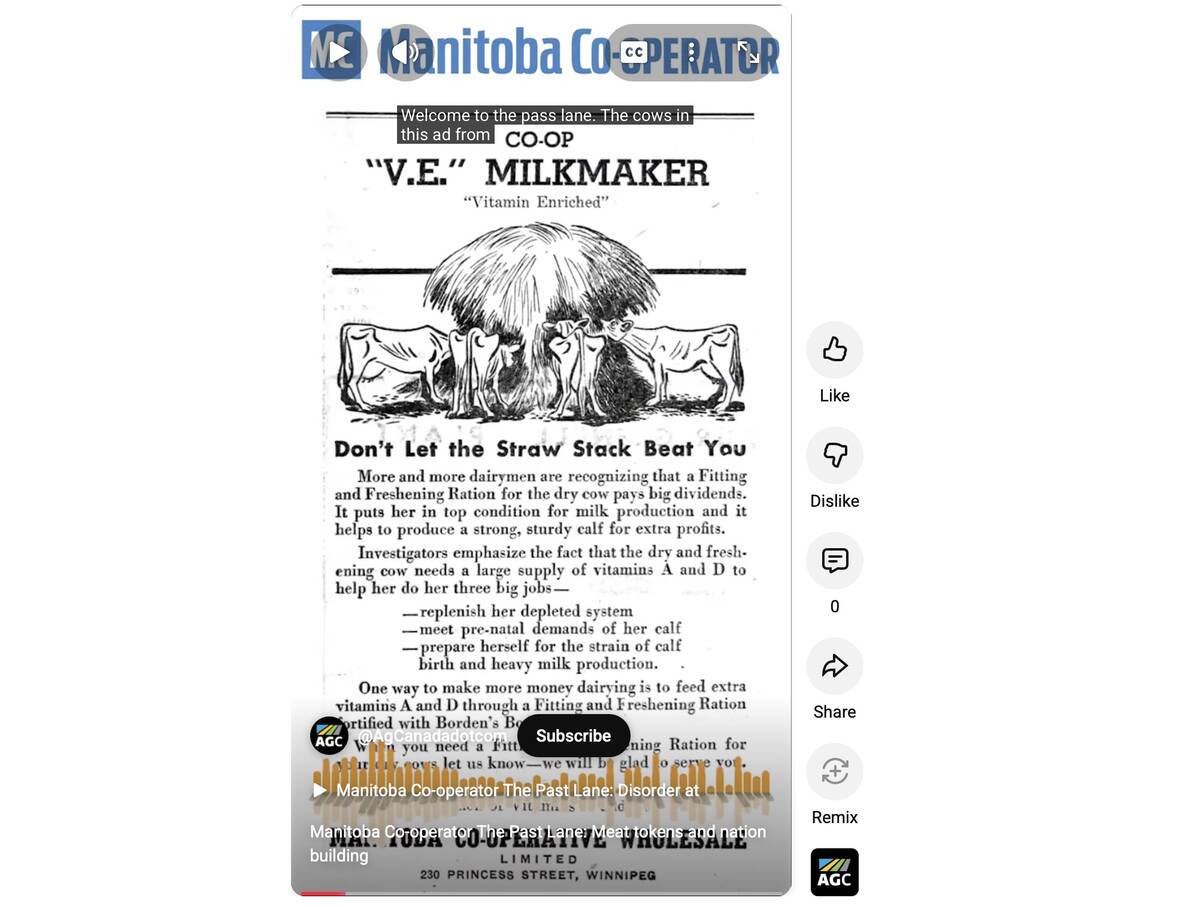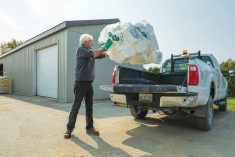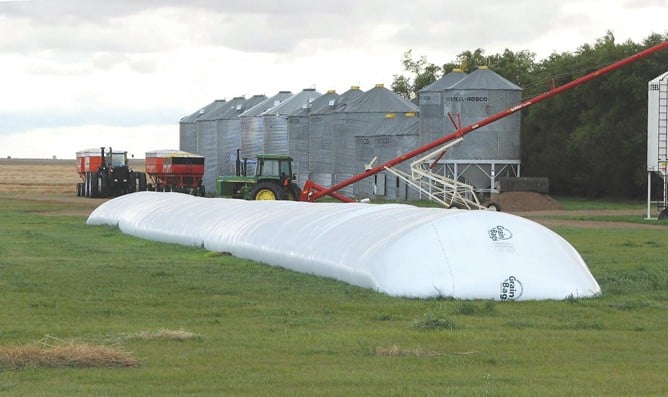A Shoal Lake cattle producer likes ‘marshmallows’ — silage bales wrapped with white plastic — but wishes it were easier to dispose of the wrap.
Robert Shwaluk farms just east of the community. He’s rented most of his grain land to other farmers and focuses on his purebred Black Angus cattle, hay and pastures.
Weather challenges pushed Shwaluk to pursue wrapped silage bales.
Read Also

VIDEO: Manitoba’s Past Lane – Jan. 31
Manitoba, 1946 — Post-war rations for both people and cows: The latest look back at over a century of the Manitoba Co-operator
“Last summer I started to make dry hay but two days after cutting in the 35 C temperatures, the leaves started to shatter off the alfalfa when baled,” commented Shwaluk. “With the silage bales, many more leaves are retained, which are the most nutritious part of the plant.”
Baling silage, instead of conventional round baling, produces fewer bales to be stacked and stored. Shwaluk said his hay yield was down to 277 of high-moisture silage bales from over 1,400 round bales in 2020.
Wrapped bales have a big advantage when manpower is in short supply, compared to the long-row bale wrapper where the bales have to be hauled and wrapped immediately after baling, Shwaluk said. The used wrap, however, presents an issue.
Only grain storage bags and twine are widely able to be recycled in Manitoba.
“Silage wrap can make a mess on a windy day, and burning plastic is not only illegal, but it also releases toxic and potentially cancer-causing chemicals into the air,” Shwaluk said.
He hauled three livestock trailers full of plastic silage film, approximately 500 bales’ worth per load, to Evergreen Environmental Technologies Ltd., a recycling facility in the municipality of Minto-Odanah, between Neepawa and Minnedosa.
Factoring in the amount of time to load and haul the plastic silage film, Shwaluk said it would be more convenient and less costly if an agricultural film drop-off and collection area was available within the RM of Yellowhead, similar to the fertilizer plastic jug disposal area on Highway 21, north of Shoal Lake.
A recent agricultural waste study estimated that 1,394 tonnes of agricultural plastics are used on Manitoba farms. This includes feed bags, twine, grain bags, silage film, bale wrap and to a much lesser extent greenhouse film, sandbags, plastic mulch and seed bags. Ag plastics are important tools that help farmers store feed for their livestock, bring crop inputs to their farm, and control moisture.
Manitoba farmers can now use a provincially regulated recycling program, run by Cleanfarms, for grain bags and baler twine. The program is funded through a non-refundable Environment Handling Fee (EHF) applied to all grain bags and baler twine at the time of the sale.
As market demand allows, a second phase of the program would see silage or bale film and netting wrap added to the list of collected items.















